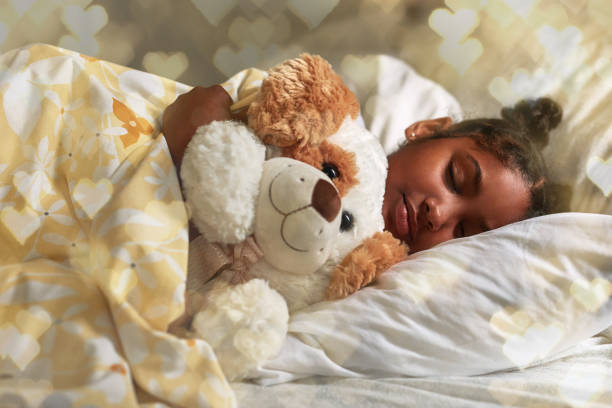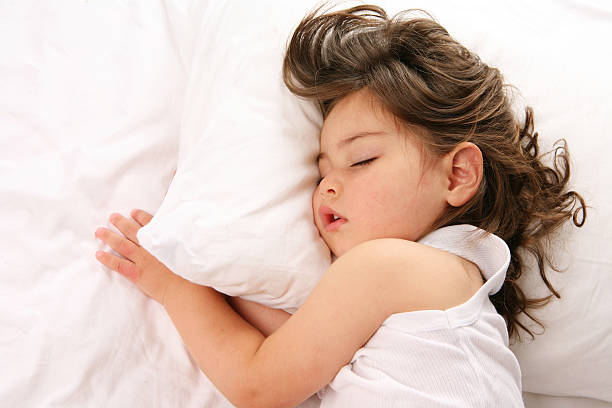
Table of Contents
Why A Good Night’s Rest Is Important For Kids
Sleep is a crucial part of a healthy lifestyle, which is why it is so important to make sure your children get plenty of it. While we adults enjoy a restful night’s sleep, our children are working on many developmental activities during that time. Kids, for example, undergo the process of memory consolidation, a process that organizes memories to determine what’s important and what’s not.
Most kids, especially those who aren’t used to being put to bed, are reluctant to go to sleep. You may even be putting up with clever tricks to get them to stay up later. But it’s not just your child’s desire to stay up late; their body needs the right amount of sleep to keep their brains developing properly. Without the proper amount of sleep, children can become hyperactive, irritable, and have trouble following instructions. Sleep deprivation can also affect their performance at school and home.
What Is The Recommended Amount of Sleep For Children?
For children, this amount varies from nine to twelve hours per night, and it’s crucial for their development. While many kids can function on less sleep, this is not the case for most. Sleep recommendations are based on age group, so it’s vital to follow them as a guide. Oversleeping can affect a child’s performance, and symptoms of oversleeping may include lack of concentration, attention, and irritability. Overtired children are also more likely to develop unhealthy eating habits, which can affect their overall health.
Several researchers and experts agree that more sleep is better for young children. According to a new study by Brigham Young University, less sleep is better for children in the early years and less is better for adolescents. The study looked at almost 2,000 schoolchildren and found that children who had the most sleep were the most alert and successful in school. The ideal sleep time for a 10-year-old was nine to nine-and-a-half hours. For 12-year-olds, the optimal amount of sleep was eight to eight-and-a-half hours. For teenagers, the recommendation is seven hours.
Children aged two to five should get 10 to 13 hours of sleep per day. After this age, they will likely no longer need a morning or early afternoon nap. Instead, they will nap only once a day. By the age of five, most children have stopped taking naps and only sleep at night. For these reasons, parents should establish a flexible bedtime based on when their child wakes up and the length of time between their last nap. Then, they can determine the best time to get their little one to sleep.
Tips For Ensuring That Your Child Gets Proper Sleep

Your child’s bedroom should be a comfortable, dark, and cool place for sleep. Use a white noise machine or a fan to drown out distractions and create a sleep-inducing environment. It’s also important to avoid TV, games, and other forms of entertainment that can keep your child awake. Your child’s room should be quiet and dark and preferably have a dedicated sleeping area.
Regular bedtime routine
A regular bedtime routine is also important for your sleep. It is essential that the whole family follows the same schedule for sleep and waking up. Children must get at least fifteen minutes of sleep each night, as they will have a much easier time waking up in the morning. A regular bedtime routine will also help them to avoid falling asleep during the day. Also, make sure your child sleeps in comfortable beds. For kids, twin or twin xl beds are considered suitable according to their size. However, the twin beds may not be suitable for the bigger kids, and in that case, a twin xl bed will work. The parents can check the size difference between twin and twin xl and then order one for their kids.
Avoiding screen time
Limiting screen time is crucial to help your child sleep better at night. When reducing screen time, you should encourage your child to engage in activities that do not involve using screens. Some of these activities include board games, spending time with family and friends, reading books, playing outside, etc. The less screen time your child has, the more rest they’ll get and the better their health will be. A child who is getting enough rest will sleep better at night, which is important for both his or her mental and physical wellbeing.
Keeping a sleep-inducing environment
One of the most important things to ensure that your child has a good night’s sleep is creating a sleep-inducing environment in the bedroom. This can be as simple as keeping the room cool and dark, avoiding the use of electronics, and keeping it quiet. Children should only be allowed to use their beds for sleeping, so TV and screen time should be avoided. Additionally, avoid providing your child with foods or drinks that could wake him up. It is okay to offer a light snack before bedtime, but avoid consuming clear beverages with caffeine or other stimulants. For infants, it is best to give them an organic formula such as goat milk baby formula as it has complete nutrients and can help your little one have a good sleep.
Nightmares during REM sleep
Infants are unlikely to have nightmares during REM sleep, but if your child is experiencing fragmented nights that are disrupting sleep, consult a paediatrician or sleep specialist. Nightmares during REM sleep are often the result of a child being awake when they don’t want to be. However, if your child is experiencing more than one night of night terrors per week, you should consider seeking treatment.
Monitoring sleeping behaviour
Monitor your child’s sleeping behaviour at regular intervals. Young children can become sleep-deprived due to daytime activities such as watching TV. In addition, some children may not be able to connect their daytime behaviour with the need for sleep. For example, they may be fighting bedtime or waking up too early in the morning. Make a note of the times your child becomes sleepy and begin the bedtime routine at least 45 minutes earlier. If your child stays up late, they may experience a second wind and become difficult to handle. Make sure you are following proper sleep health for your baby so that they stay fit.
Lastly
Children who lack sleep tend to be grumpy and hyperactive, which mimics the symptoms of ADHD. Children who do not get enough sleep are less able to focus, and can also experience anxiety and depression. Studies have linked sleep deprivation to an increased risk of car accidents, sports injuries, and depression. But what is more important than the effects of sleep deprivation on your child’s mental and physical health?














